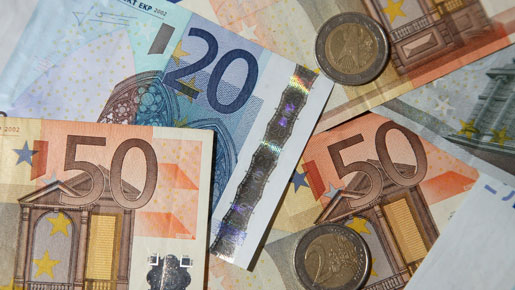
Price growth in the 15 countries using the euro speeded up slightly more than expected from 3.3 percent year-on-year, the European Union statistics office said, further from the ECB target of just below 2 percent. Analysts polled by Reuters had expected inflation to be 3.5 percent, a touch lower than a recent 3.6 percent, a figure boosted by soaring prices of energy and food.
ECB officials voiced renewed concern over the effect soaring prices of oil, food and raw materials are having on inflation in another sign the bank will not cut its main rate from the current 4.0 percent this year to bolster flagging growth. “We must take care that the current price shocks in oil and food don’t lead to price increases for other goods or to excessive wage deals, and thereby set in train a general wave of price and wage rises,” ECB President Jean-Claude Trichet said in an interview.
ECB Governing Council member Axel Weber said rises in food and energy costs may be the most worrying price shocks ever faced by the bank, but were no reason to axe its inflation goal. Analysts said the hawkish language would not lead to a rate hike this year, with Friday’s data providing new evidence that euro zone economic growth was slowing.
Gloomy German data
In Germany, the euro zone’s biggest economy, retail sales unexpectedly fell for a second straight month in April, sending the euro down against the dollar. Adjusted for seasonal variations, German retail sales fell 3.3 percent on the month in real terms after a 3.8 percent decline in March, Bundesbank data showed. On the year, sales were down 5.1 percent. “We doubt whether the ECB is willing to intensify the economic downturn that will already dampen underlying inflationary pressure in the medium term,” said Martin van Vliet, economist at ING.
The European Commission said earlier euro zone growth would slow to 1.7 percent this year from 2.6 percent in 2007. Eurostat’s flash inflation estimate contained no monthly data or details, but separate country data already showed inflation surging in Germany, the euro zone’s biggest economy, to 3.0 percent in May from 2.4 percent.
Inflation records
Italy reported its inflation jumped to a record high in May, with the annual rate rising from 3.6 percent to 3.7 percent, the highest since the series began in 2001. Earlier, Belgium said its annual inflation hit a 23-year high of 5.21 percent in May, after 4.15 percent previosuly. Spanish inflation rose to 4.7 percent, the highest in records dating back to 1997, from 4.2 percent. Inflationary pressures were also evident in France, where producer prices rose at their fastest annual pace in at least 8-1/2 years, up 0.7 percent from the previously.
But the chairman of euro zone finance ministers, Jean-Claude Juncker, said European Union states should abide by a 2005 deal not to use tax measures to ease the pain of oil price hikes. Separately, Eurostat said the euro zone’s unemployment rate remained stable at 7.1 percent.
Economists expect the ECB to remain hawkish on prices, but also follow closely how euro zone growth is affected by a strong euro, expensive energy and a U.S. slowdown in the wake of a credit crunch caused by the subprime mortgage crisis. “It is looking ever more likely that the ECB will not trim interest rates until 2009 as it will want to see extended, clear evidence that weaker growth is diluting underlying inflation pressures,” said Howard Archer, chief European economist at Global Insight.

